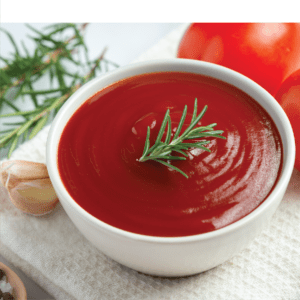
What Options Are There for Retailing Your New Food Products?
Food marketers have a variety of retail channels available to reach their target customers and distribute their products. These retail channels can vary based on the type of food or beverage product, the target market, and the marketing strategy. Here are some common retail channels used by food marketers:
- Grocery Stores and Supermarkets: Traditional grocery stores and supermarkets are popular channels for selling food products to a wide range of consumers. These stores carry a broad selection of food items and provide significant exposure to potential customers. But they can be challenging to get into and expensive to sustain.
- Specialty Food Stores: These stores focus on specific types of food and beverage products, such as organic foods, health foods, gourmet items, or ethnic cuisine. They attract customers seeking unique and premium food offerings. They are often premium priced and often a great place to test market your new concept.
- Convenience Stores: Convenience stores are small retail outlets that offer a limited selection of food products and are typically located in high-traffic areas for quick and easy purchases. They have recently shifted to include more prepared food items, and this may be a great opportunity for you to test your concept and product.
- Farmers’ Markets: Farmers’ markets provide a direct-to-consumer channel for locally produced food items. They offer a unique opportunity for food marketers to connect with consumers and share the story behind their products. Many retailers are now asking for a history of your experiences in local markets as they provide insight and proof of concept for your product.
- Online Retail: E-commerce platforms and online marketplaces allow food marketers to sell their products directly to customers through websites or third-party platforms. This channel provides convenience and accessibility for customers, especially those who prefer online shopping. The downside can be shipping so depending upon the fragility of your product and or the weight of a 6 pack this can be a great way to go.
- Foodservice and Restaurants: Selling to restaurants and food service establishments allows food marketers to reach a broader audience, especially if their products are suitable for commercial use.
- Food Trucks: Food trucks are mobile food vendors that can travel to different locations, events, and markets, offering an opportunity for food marketers to reach a diverse customer base.
- Specialty Retailers: Specialty retailers, such as gourmet shops, health food stores, or natural food stores, cater to niche markets and can be a good fit for food products with specific attributes or benefits.
- Direct-to-Consumer (DTC): Some food marketers choose to sell their products directly to consumers through their own physical stores or online platforms, cutting out the intermediaries and building a closer relationship with their customers.
- Wholesale Distribution: Food marketers can also distribute their products through wholesalers who supply retailers, restaurants, and other businesses. This allows for wider distribution but often involves selling at lower wholesale prices.
- Subscription Boxes: Participating in subscription box services allows food marketers to offer their products as part of a curated collection delivered to customers regularly.
- Mass Merchandisers: Mass merchandisers, like big-box stores and discount retailers, can provide high-volume sales opportunities for food products with broad appeal.
- Specialty Distributors: Specialty food distributors focus on specific types of products or markets and can be beneficial for reaching niche customers.
The choice of retail channels will depend on factors like the target audience, product characteristics, budget, and overall business strategy. Many food marketers utilize a combination of these retail channels to maximize their reach and impact in the market. Keep in mind channels like gift baskets, snack delivery companies, and even coffee shops are now providing significant retailing opportunities that are outside of the box.
Food Biz Mentoring Think Tank’s 12-week Start-Up Strong Program will give you ideas and insights on how best to navigate retail opportunities that best fit your brand.
